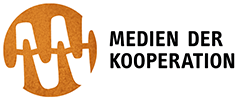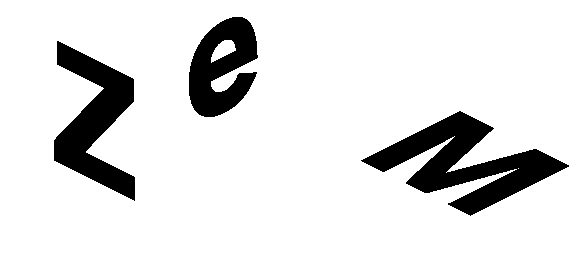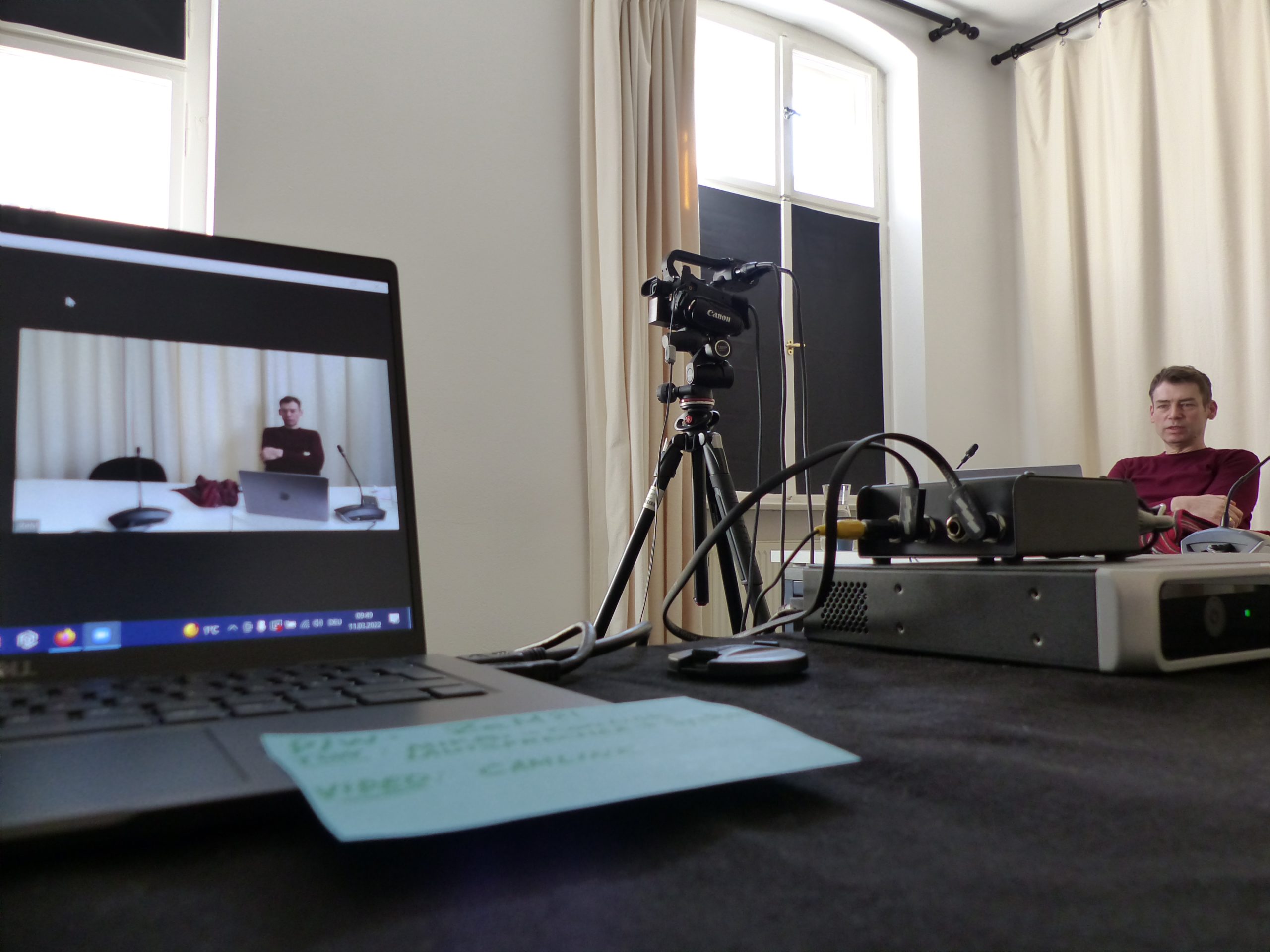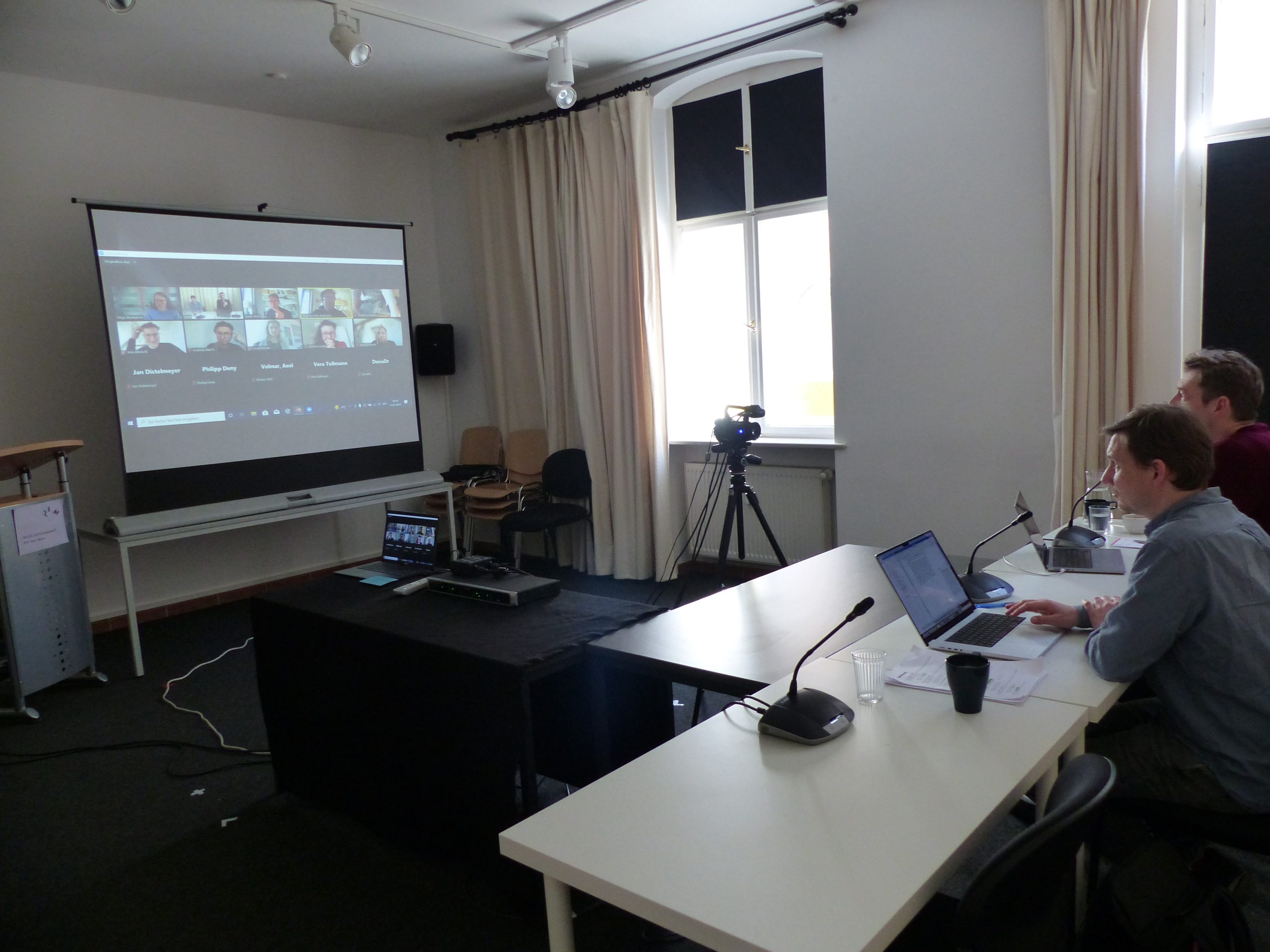
10. März 22 -
Fr.
11. März 22
Ort
Online
Authors‘ Workshop “Video Conferencing. Practices, Politics, Aesthetics”
Author’s workshop for an international anthology edited by Axel Volmar, Olga Moskatova, and Jan Distelmeyer.
In cooperation with the Special Collaborative Research Center (CRC) 1187 “Media of Cooperation” at the University of Siegen.
The COVID-19 pandemic has reorganized existing methods of exchange, transforming comparatively marginal technologies into the new normal. Video conferencing in particular has become a favored means for spatially distributed forms of communication and collaboration without physical copresence. Corresponding apps and their infrastructures proliferate, leading to a widespread adoption of video conferencing in various societal domains, such as work, education, leisure, friends and family. This sudden omnipresence of video conferencing has already provoked a burst of reactions in recent months, with the rise of Zoom coming to stand for new practices of networked, synchronous online sociality. Scholars have discussed, for instance, Zoom’s physical effects (e.g., “zoom fatigue”), privacy issues, malicious practices (e.g., “zoom bombing”), and split-screen aesthetics. Despite this attention, however, video conferencing remains relatively understudied in media studies. The “Video Conferencing: Practices, Politics, Aesthetics” anthology therefore takes the current situation as a point of departure for examining the mediality of video conferencing, while expanding the scope of the examination beyond the context of the pandemic to address video conferencing as a medium more broadly.
Video conferencing establishes connections and mediations whose analysis requires the consideration of different levels and their interrelation. Its mediality prompts to interrogate the complex interplay of materiality and software, platform structures and economies, education and society, and the aesthetics of encounters and their associated practices and technical procedures. The focus on the conditions, procedures, and effects of mediation raises questions both technical and cultural, political and aesthetic, and historical and topical. What socio-technical and practical needs does video conferencing respond to, and which practices and conditions, conversely, are produced by video conferencing in the first place? What political, socioeconomic, and cultural contexts are operative or altered in the process? To what extent are new opportunities of access, participation, and spanning distances opened up, or the conditions of being-with narrowed? And finally, what aesthetic forms are being generated, passed on, or modified?
To address these questions, the anthology puts emphasis on media processes and configurations that constitute video conferencing and structure its practices, politics, and aesthetics. As an umbrella term, “video conferencing” includes diverse and historical applications, such as image and video telephony, telepresence, and visual communications, and thus demands attention to the specific meanings and media practices it acquires in different contexts. Although the anthology is broadly conceived, it especially encourages proposals that engage approaches in media studies and related disciplines, such as media theory, film and television studies, critical infrastructure studies, science and technology studies, software and platform studies, critical theory, cultural studies, and interface studies. These diverse approaches share an interest in issues of mediation and together enable a comprehensive account of the complexity of video conferencing as a media phenomenon. In this respect, the use of the gerund is also programmatic: in contrast to the noun “video conference,” the progressive form “video conferencing” deliberately stresses the procedural, praxeological, and agential aspects of the subject.
The workshop is will take place online and partly on-site in collaboration with the Brandenburgisches Zentrum für Medienwissenschaften (ZeM), Potsdam. Due to its format (discussion of pre-circulated chapter drafts), the event will not be open to the public. For further information please see the CRC-website.
In cooperation with the Special Collaborative Research Center (CRC) 1187 “Media of Cooperation” at the University of Siegen.










